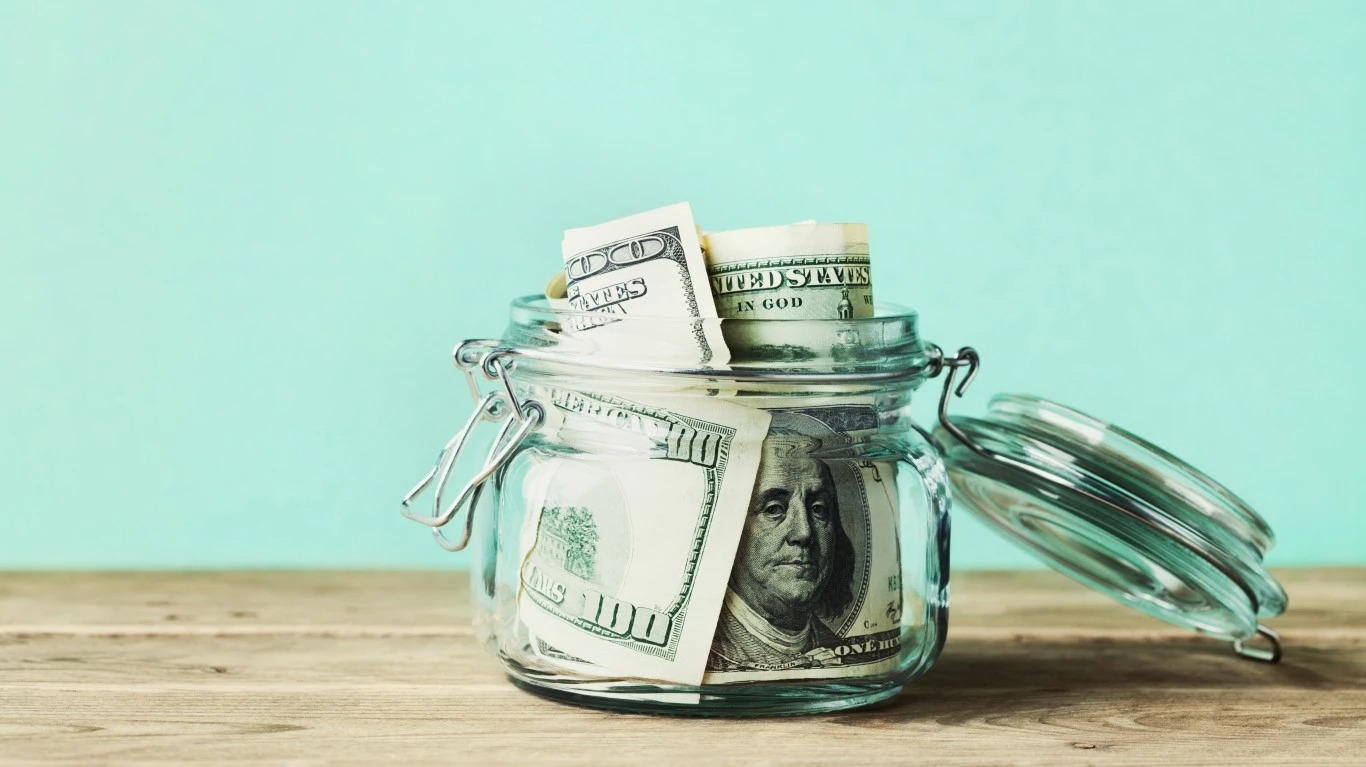
Online searches for ‘Is my money safe?’ rose 43% above the average volume in the last few days, as news broke that yet another bank, New York City-based Signature Bank, had to close as a consequence of Silicon Valley Bank’s (SVB) collapse on Friday, March 10th.
A new analysis of Google search data by Financial-World.org reveals that as concern and panic started to spread among Americans, many took their questions to the web to understand the situation and to make sure their savings were safely tucked away in their bank after the second-largest bank failure in American history and the domino effect of banking disruptions left in its wake.
Americans also searched for ‘What happened to SVB,’ which rose 67% once again as the news broke out, four days after its original search spike, and ‘Why banks fail,’ which rose almost 90%.
What Happened to Silicon Valley Bank?
This situation stems from the purchase of billions of dollars worth of bonds in the last couple of years by SVB using its customers’ deposits, a standard procedure in the banking sector that results in “free money” to the bank by collecting the spread in bond rates versus the interest rates they pay to on customer accounts. However, in this case, it led to disastrous consequences.
While these investments are typically safe, their value fell because they paid lower interest rates than what a comparable bond would pay if issued in today’s higher interest rate environment. Because of this, the bank’s clients, mainly start-ups and tech-related businesses, began accessing their funds and started a run on the bank, which inevitably led to the bank having to start selling its assets to meet customer withdrawal requests.
The bank tried to raise additional capital through outside investors but could not find them in time. Therefore the Federal Deposit Insurance Corporation (FDIC) took over the institution, eventually closing it down.
A spokesperson for Financial-World.org commented on the findings: “The President of the U.S., Joe Biden took matters into his own hands last night by presiding a press conference where he reiterated many times that citizens have nothing to fear, that their money will be available when they need it, and that this disaster won’t need taxpayers’ money to be fixed.
“The Biden Administration was indeed quick to intervene; however, the fear isn’t behind Americans, as this might only be the start of a larger snowball that might attack the banking system as a whole and the U.S. economy.”
Is My Money Safe?
Thanks to laws put in place after the Great Depression, if you have less than $250,000 deposited in a bank insured by the Federal Deposit Insurance Corporation (FDIC), your money is protected, even in the event of a bank failure. For the average American with less than this amount in a single bank account, there is no need to worry about the safety of their deposits.
In the case of SVB, many depositors were individuals and businesses with large account balances. Any amount over $250,000 is considered uninsured and at risk of loss.
“Those most at risk were small to medium-sized businesses who were unsure if they would be able to meet payroll or pay their bills, and the downstream effect that would have on the high-paying jobs they provide to employees and contractors,” said Emily Stringer, owner of Emergency Plumbing On Call.
However, on Monday, President Biden stepped in to communicate that he had instructed his administration to backstop all depositors’ funds and do whatever was necessary to ensure the banking system’s safety and prevent further disruptions.
“Americans can rest assured that our banking system is safe. Your deposits are safe. Let me also assure you we will not stop at this. We will do whatever is needed on top of all this,” Biden said in his address.
How Can I Further Protect My Money?
While Biden promised to make SVB depositors whole no matter their account balances, that is not always the case in every bank failure. If you have more than $250,000 in an account, consider opening a joint account or moving some funds to another bank so that FDIC protections apply to all your money.
According to Greg McBride, chief financial analyst at Bankrate, “a married couple can easily protect a million dollars at the same bank by each having an individual account and together having a joint account.” The FDIC provides insurance up to $500,000 to a joint account held with someone such as your spouse and up to $250,000 each on two individual accounts.
In addition, you can also move money to another financial institution protected by the FDIC. Since it is not the individual that is insured but the account, spreading your money across financial institutions can protect $250,000 per account.
For example, if you have a side job or small business, it may make sense to open an account at a different institution than where you personally bank, not only to keep your personal and business finances separate but to make sure both accounts are kept under the FDIC limit.
Be Ready
Fortunately, the federal government agreed to make Silicon Valley Bank and Signature Bank depositors whole, above and beyond the $250,000 FDIC limit. But that may not always be the case.
It’s better to plan ahead to ensure your individual or business accounts do not exceed the FDIC threshold by opening additional accounts across multiple banks, if necessary, to ensure your funds and your future are safe.
This article was produced and syndicated by Wealth of Geeks.
Sponsored: Tips for Investing
A financial advisor can help you understand the advantages and disadvantages of investment properties. Finding a qualified financial advisor doesn’t have to be hard. SmartAsset’s free tool matches you with up to three financial advisors who serve your area, and you can interview your advisor matches at no cost to decide which one is right for you. If you’re ready to find an advisor who can help you achieve your financial goals, get started now.
Investing in real estate can diversify your portfolio. But expanding your horizons may add additional costs. If you’re an investor looking to minimize expenses, consider checking out online brokerages. They often offer low investment fees, helping you maximize your profit.






